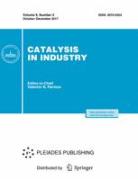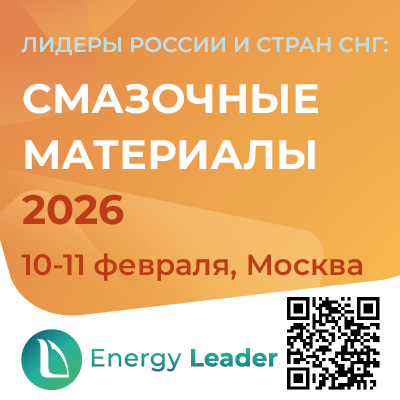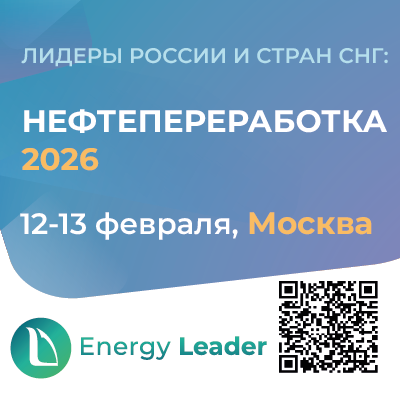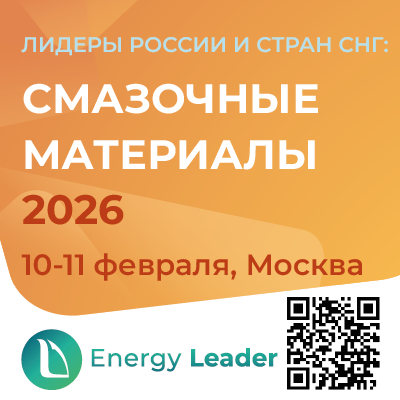Research of the Process of Producing Nitrous Oxide in a Microstructured Slit-type Reactor
https://doi.org/10.18412/1816-0387-2024-4-94-108
Abstract
The work is devoted to mathematical modeling of the process of N2O synthesis by NH3 oxidation on an Mn/Bi/Al oxide catalyst in a slot-type microstructured reactor (MSR). The characteristics of the process were studied at various linear flow rates, inlet ammonia concentrations, and reactor edge temperatures. The parameters have been determined to ensure efficient implementation of the process in the MSR under thermally acceptable conditions. The fundamental possibility of scaling an MSR by increasing its geometric dimensions by a factor of without overheating the reaction zone has been demonstrated. The results obtained indicate that in an MSR of this configuration, the N2O capacity can be increased by approximately 12 times compared to the best performance of a standard microreactor, and the specific catalyst productivity is approximately 1.5 times greater than in a traditional tubular reactor. The opportunity opens up to create small-scale production of high-purity nitrous oxide for various applications by scaling up microreactor systems. The results of the study are in line with the concept of “distributed chemicalization” and help overcome the barrier between laboratory catalytic microreactors and industrial-level devices.
About the Authors
A. G. SheboltasovRussian Federation
N. V. Vernikovskaya
Russian Federation
V. A. Chumachenko
Russian Federation
References
1. https://itek.ru/reviews/koncepciya-raspredelennoj-himizacii-otvet-na-sovremennye-vyzovy/.
2. Ehrfeld W., Hessel V., Löwe H. Microreactors ‒ New Technology for Modem Chemistry. Weinheim: Wiley-VCH, 2000. 288 pp. https://doi.org/10.1002/3527601953
3. Букина О. С. Применение закиси азота в детской стоматологии // БМИК. 2015. Т. 5. № 6. С. 969−971.
4. Yan et al. // Psychiatry Research. 2022. V. 317. 114867. https://doi.org/10.1016/j.psychres.2022.114867
5. Gillman M. A., Lichtigfeld F., Young T. // Cochrane Database Syst Rev. 2007. 24 pp. https://doi.org/10.1002/14651858.CD005190.pub2
6. Das R. K., Tamman A., Nikolova V., Freeman T. P., Bisby J. A., Lazzarino A. I., Kamboj S. K. // Psychological medicine. 2016. V. 46. P. 1749−1759. https://doi.org/10.1017/S003329171600026X
7. Teixeira V., Carneiro J., Carvalho P., Silva E., Azevedo S., Batista C. // Multifunctional and Nanoreinforced Polymers for Food Packaging. 2011. P. 285–315. https://doi.org/10.1533/9780857092786.1.285
8. Butler L. R. P, Fulton A. // Appl Opt. 1968. V. 7. No. 10. P. 2131−2137. https://doi.org/10.1364/AO.7.002131
9. Макаршин Л. Л., Пай З. П., Пармон В. Н. // Успехи химии. 2016. Т. 85. № 2. С. 139−155. https://doi.org/10.1070/RCR4484
10. Andreev D. V., Sergeev E. E., Gribovskii A. G., Makarshin L. L., Prikhod'ko S. A., Adonin N. Yu., Pai Z. P., Parmon V. N. // Chem. Eng. J. 2017. V. 330. P. 899–905. https://doi.org/10.1016/j.cej.2017.08.028
11. Andreev D. V., Makarshin L. L., Gribovskii A. G., Yushchenko D. Yu., Sergeev E. E., Zhizhina E. G., Pai Z. P., Parmon V. N. // Chem. Eng. J. 2015. V. 259. P. 252–256. https://doi.org/10.1016/j.cej.2014.07.118
12. Shia H., Niea K., Dong Bo, Long M., Xu H., Liu Z. // Chem. Eng. J. 2019. V. 361. P. 635–650. https://doi.org/10.1016/j.cej.2018.12.104.
13. Hernández Carucci J. R., Eränen K., Murzin D. Yu., Salmi T. O. // Catal. Today. 2009. V. 147S. P. S149–S155. http://dx.doi.org/10.1016/j.cattod.2009.07.034.
14. Hernández Carucci J. R., Eränen K., Salmi T. O., Murzin D. Yu. // Russian Journal of General Chemistry. 2012. V. 82, No. 12. P. 2034‒2059. https://doi.org/10.1134/S1070363212120250
15. Ashraf M. A., Tacchino S., Rao Peel N., Ercolinoa G., Gill K. K., Vlachos D. G., Specchia S. // Ind. Eng. Chem. Res. 2021. V. 60. No. 1. P. 196‒209. https://doi.org/10.1021/acs.iecr.0c04837
16. Balzarotti R., Ambrosetti M., Beretta A., Groppi G., Tronconi E. // Front. Chem. Eng. 2022. V. 3. 811439. https://doi.org/10.3389/fceng.2021.811439
17. da Costa Filho B. M., Vilar V. J. P. // Chem. Eng. J. 2019. V. 391. 123531. https://doi.org/10.1016/j.cej.2019.123531
18. Gribovskii A. G., Ovchinnikova E. V., Vernikovskaya N. V., Andreev D. V., Chumachenko V. A., Makarshin L. L. // Chem. Eng. J. 2017. V. 308. P. 135–141. https://doi.org/10.1016/j.cej.2016.09.058
19. Ovchinnikova E. V., Vernikovskaya N. V., Gribovskii A. G., Chumachenko V. A. // Chem. Eng. J. 2021. V. 409. 128046. https://doi.org/10.1016/j.cej.2020.128046
20. Vernikovskaya N. V., Sheboltasov A. G., Ovchinnikova E. V., Gribovskiy A. G., Chumachenko V. A. // Chem. Eng. J. 2023. V. 451. 138368:1-12. https://doi.org/10.1016/j.cej.2022.138368
21. Rebrov E. V., de Croon M. H. J. M., Schouten J. C. // Chem. Ing. Techn. 2001. V. 73. No. 6. P. 676–676. https://doi.org/10.1002/1522-2640(200106)73:6<676::AID-CITE6762222>3.0.CO;2-0
22. Rebrov E. V., de Croon M. H. J. M., Schouten J. C. // Catal. Today. 2001. V. 69. P. 183–192. https://doi.org/10.1016/S0920-5861(01)00368-6
23. Ignatov A. S., Vernikovskaya N. V., Chumachenko V. A., Noskov A. S. // Catal. in Ind. 2021. V. 1. No. 1−2. P. 74–85. https://doi.org/10.18412/1816-0387-2021-1-2-74-85
24. Veser G. // Chem. Eng. Sci. 2001. V. 56 (4). P. 1265–1273. https://doi.org/10.1016/S0009-2509(00)00348-1
25. Gribovskiy A. G., Makarshin L. L., Andreev D. V., Klenov S. P., Parmon V. N. // Chem. Eng. J. 2013 V. 231. P. 497–501. http://dx.doi.org/10.1016/j.cej.2013.07.068
26. Venvik H. J., Yang J. // Catal. Today. 2017. V. 285. P. 135–146. https://doi.org/10.1016/j.cattod.2017.02.014
27. Ajmera S. K., Delattre C., Schmidt M. A., Jensen K. F. // Sensors and Actuators B: Chemical. 2002. V. 82. No. 2‒3. P. 297–306. https://doi.org/10.1016/S0925-4005(01)01012-7
28. Noskov A. S., Zolotarsky I. A., Pokrovskaya S. A., Korotkih V. N., Slavinskaya E. M., Mokrinskii V. V., Kashkin V. N. // Chem. Eng. J. 2003. V. 91. P. 235−242. https://doi.org/10.1016/S1385-8947(02)00159-6
29. Dong Z., Wen Z., Zhao F., Kuhn S., Noël T. // Chem. Eng. Sci. X. 2021. V. 10. 100097. https://doi.org/10.1016/j.cesx.2021.100097
30. Кагырманова А. П. Оптимизация формы и размеров зерна катализатора в трубчатых реакторах с неподвижным зернистым слоем: Дисс. канд. техн. наук: 02.00.15. Новосибирск. 2009. 149 с.
31. Патент RU2323047C1, 2006.
32. https://ekokataliz.ru/wp-content/uploads/2016/04/Penomaterialyi-proizvodstva-kompanii-E%60KAT-1.pdf.
33. Рид Р., Праусниц Дж., Шервуд Т. Свойства газов и жидкостей. Спр. пособие. Л.: Химия. 1982. 592 с.
34. Бретшнайдер С. Свойства газов и жидкостей: инженерные методы расчета: практическое пособие. Москва, Ленинград: Химия. 1966. 535 с.
35. Rossi D., Gargiulo L., Valitov G., Gavriilidis A., Mazzei L. // Chemical Engineering Research and Design. 2017. V. 120. P. 159–170. http://dx.doi.org/10.1016/j.cherd.2017.02.011
36. Levenspiel O. Chemical Reaction Engineering, 3rd ed. New York: John Wiley & Sons. 1999. 688 p.
37. Renken A., Kiwi-Minsker L. // Adv. Catal. 2010. V. 53. P. 47–122. http://dx.doi.org/10.1016/s0360-0564(10)53002-5
38. Cybulski A., Moulijn J. A. // Catal. Rev. Sci. Eng. 1994. V. 36. P. 179−270. https://doi.org/10.1080/01614949408013925
39. Малиновская О. А., Бесков В. С., Слинько М. Г. Моделирование каталитических процессов на пористых зернах. Новосибирск: Наука. 1975. 266 с.
40. Salmi T. O., Mikkola J.-P., Warna J. P. Chemical Reaction Engineering and Reactor Technology. Boca Raton: CRC Press. 2008. 644 p. https://doi.org/10.1201/9781439894859
41. Wilke C. R., Lee C. Y. // Ind. Eng. Chem. Res. 1955. V. 47. No. 6. P. 1253–1257. https://doi.org/10.1021/ie50546a056
42. Russo V., Kilpiö T., Hernandez Carucci J., DiSerio M., Salmi T. O. // Chem. Eng. Sci. 2015. V. 134. P. 563–571. https://doi.org/10.1016/j.ces.2015.05.019
Review
For citations:
Sheboltasov A.G., Vernikovskaya N.V., Chumachenko V.A. Research of the Process of Producing Nitrous Oxide in a Microstructured Slit-type Reactor. Kataliz v promyshlennosti. 2024;24(4):94-108. (In Russ.) https://doi.org/10.18412/1816-0387-2024-4-94-108



























